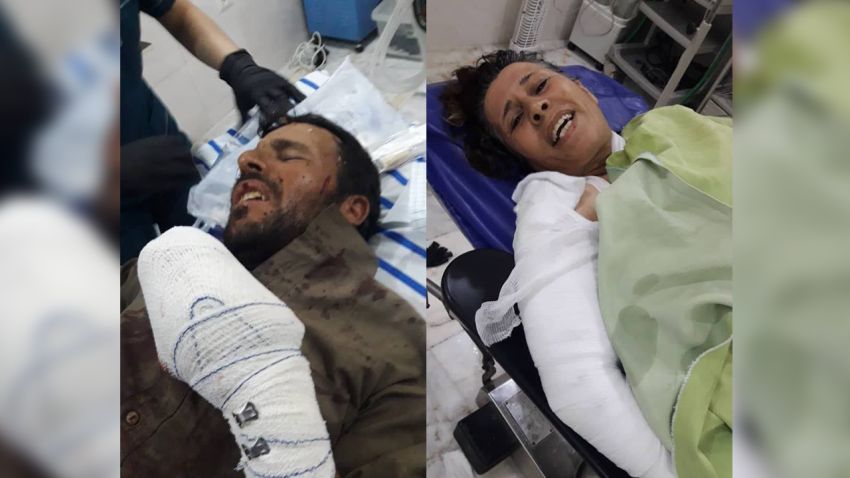
After meetings with the North Atlantic Treaty Organization (NATO), the United States, Russia and Iran, the Recep Tayyip Erdoğan dictatorship in Turkey failed to get international support for its planned new invasion of Kurdish-liberated North and East Syria (Rojava), according to Syrian Democratic Forces (SDF) Commander-in-Chief Mazloum Abdi.
Frustrated by its inability to get support for an invasion, Turkey has escalated its killer drone attacks and shelling of border cities and towns in Rojava (including Kobanê), sparking renewed calls for the United Nations to impose a no-fly zone over Rojava.
These attacks were described by ultra-nationalist Turkish media as a prelude to a full-scale invasion, but they appear to have backfired.
The Erdoğan regime broached the possibility of mending ties with Syria's Bashar al-Assad regime on August 15. Erdoğan’s Justice and Development Party (AKP) deputy chair Hayati Yazıcı said that “relations with Damascus may become direct, and see an increase in level,” according to Turkish newspaper Dünya.
There were also reports that the Erdoğan and Assad regimes had secretly restored communication links between their intelligence services.
But Erdoğan’s overture to Assad was met with angry protests from opposing sides in the ongoing Syrian civil war. Demonstrations took place in areas of Syria controlled by Turkish-backed rebel militias. According to a North Press Agency report, the Assad regime’s parliament condemned Turkey’s attacks on northern Syria and Erdoğan’s plan to occupy a 30km-deep zone along the Turkey-Syria border.
“The Turkish regime aims, through this occupation, to revive the illusion of the safe zone, and to cause a new wave of displacement of the region’s residents," said a statement by the Damascus-based People’s Assembly of Syria. "It also seeks to bring about demographic change in the region, and to create a new reality that threatens regional and international peace and security...
“Known to everyone [is] the malicious Turkish policy to achieve despicable goals and gains. The regional and international attitudes confirm the non-legitimisation of this occupation military intervention in Syria. There is an international consensus on rejecting the so-called safe zone.”
Erdoğan has sought to use the war in Ukraine to pressure NATO and Russia into supporting his plan to invade Rojava. He did so explicitly at the NATO Madrid summit, in negotiations to allow wheat exports to leave Ukrainian ports and supply the Ukrainian government with Turkish-manufactured Bayraktar TB2 killer drones.
These are the same killer drones that are being used to assassinate Kurdish freedom fighters in Rojava and Bashur (South Kurdistan) in northern Iraq.
According to David Pollock from the Washington Institute for Near East Policy — a US-based think tank that strongly supports Israel — the US has the means to stop the killer drone attacks on Rojava, but chooses not to do so.
Erdoğan plans to visit Ukraine for the first time on August 18, according to Middle East Eye.
“Ukrainian Defence Minister Oleksii Reznikov revealed in June that Ukraine has received 50 armed drones from Turkish arms company Baykar since Russia's February 24 invasion,” the report added.
Selçuk Bayraktar, one of the owners of the company is Erdoğan’s son-in-law. Selçuk’s brother, Haluk Bayraktar, is the company’s CEO. He plans to establish a factory in Ukraine to manufacture military drones.
Haluk Bayraktar said Turkey has been cooperating closely with Ukraine on an unmanned fighter project and more advanced Akinci high-altitude, long-endurance drones.
Erdoğan’s role in the Ukrainian conflict allows him to present himself as an important international political broker. This helps offset growing domestic pressure from a dire economic situation. The annual inflation rate in Turkey is now at 79.6% and still rising.
According to the global “misery index” measured by bne IntelliNews, in May this year, Turkey “has an extremely high despair index of 93.8, even worse than that of sanction-embattled Russia’s 42.5” Independent economists estimate Turkey’s despair index is more likely 170.3, making it worse than “war-torn Ukraine’s 115.3”.
“In Turkey the outlook is bad, and things are likely to only get worse,” bne IntelliNews said.
Meanwhile, the progressive and pro-Kurdish Peoples' Democratic Party (HDP) accused the Turkish government of carrying out new war crimes in Kobanê and for waging psychological warfare on the population of Rojava.
The HDP statement said that on the evening of August 16, a Turkish invasion of Syria was announced over loudspeakers from mosques in the province of Gaziantep and news of an impending “invasion of Syria” was spread by Turkish and Russian news agencies.
"All these attacks strengthen the barbarity of ISIS, which is trying to consolidate its current position in Iraq and especially in Syria…
“The rhetoric and the machinations of lies of this government, which sets fire everywhere for its own narrow interests and seeks its political survival in the politics of war, must be questioned. We appeal to all political parties and social forces that say ‘No to war and occupation’.
“Kobanê is the pride and symbol of the struggle of the peoples and democracy in the world. The silence of the international powers on these attacks against the Kurds in Kobanê is shameful for all the peoples of the world.”